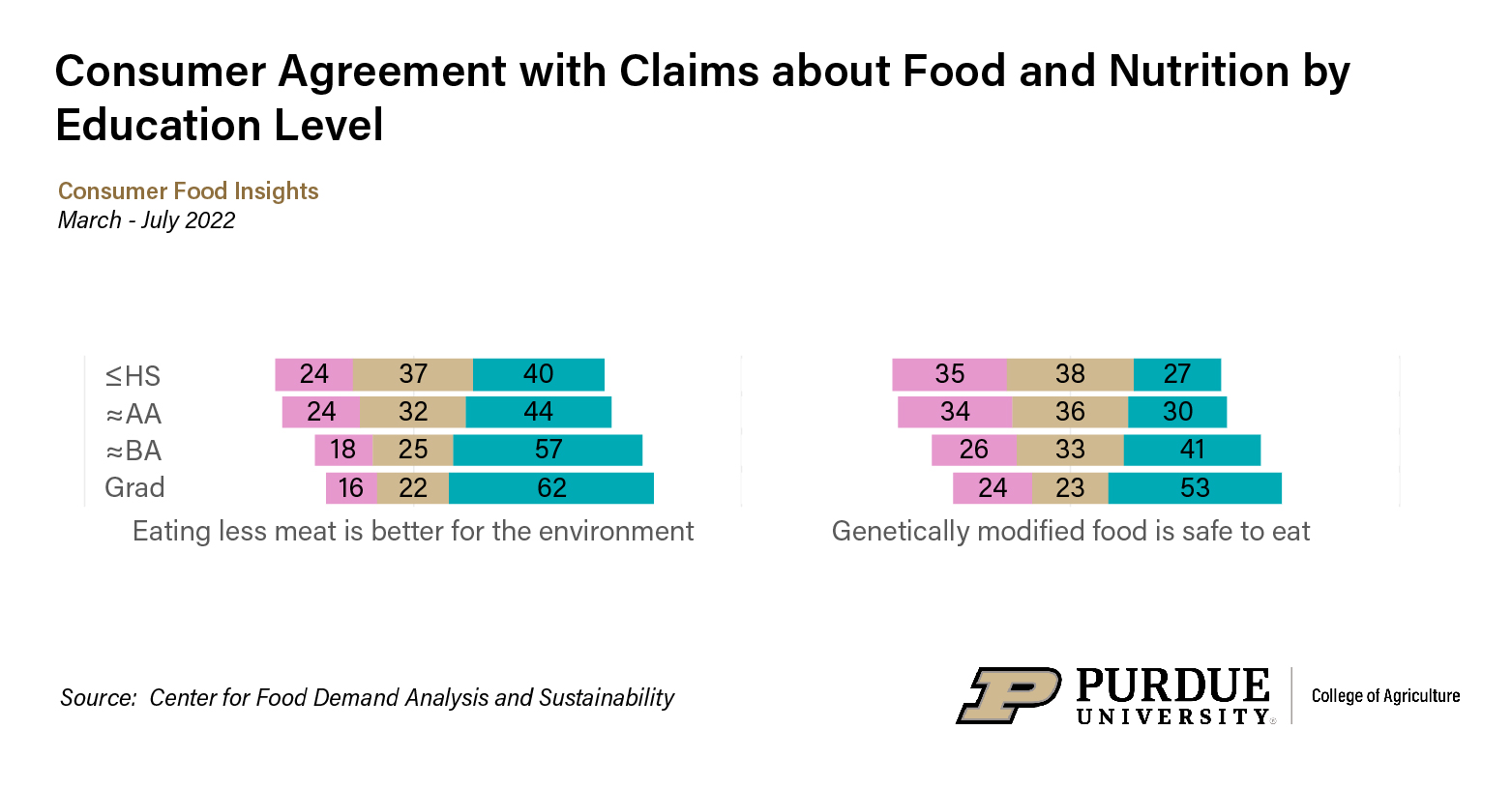Fourth of July spreads didn't shrink, but consumers are hitting their limits with higher food prices
F
or most Americans, higher prices at the grocery store did not impact their Fourth of July cookout, but more consumers are looking for sales and switching to generics, according to the Consumer Food Insights Report.
The survey-based report out of Purdue University’s Center for Food Demand Analysis and Sustainability assesses food security and spending, consumer satisfaction and values, support of agricultural and food policies and trust in information sources.
Compared to five months ago, more Americans are making changes in response to higher food prices. The largest share of consumers, 28%, now reports seeking out more sales and discounts, and more people are switching to generic, using coupons, cutting out nonessentials and shopping at cheaper stores.
“Shopping discounts and generics is a clear sign of budget consciousness among consumers,” said Jayson Lusk, the head and Distinguished Professor of Agricultural Economics at Purdue who leads the center. “After increasing for several months in the first half of the year, food expenditures are now remaining relatively consistent. This indicates consumers have become more concerned with finding ways to keep their grocery bills from rising any higher.”
Purdue experts conducted and evaluated the survey, which included 1,200 consumers across the U.S.
Additional key results include:
- 16% of all households are food insecure.
- Weekly food spending rose by 3% from June to $191 per week.
- More consumers are looking for sales, switching to generics, compared to five months ago.
- Food insecurity in 2022 is highest among those without any college education.
- A Sustainable Food Purchasing (SFP) Index of 69/100.
In addition to the monthly survey, the team analyzed how responses differed across education levels. The team studied survey data from January to July, and the results showed differences in several areas, including food insecurity, importance of nutrition to purchases, satisfaction with one’s diet and behaviors related to sustainability.
The importance of nutrition in food purchasing increases as consumers complete more years of college. The most educated consumers also report being most satisfied with their diets, the results showed. In addition, gardening, vegetarianism and recycling are most popular among those with a graduate degree.
 An analysis of food beliefs across consumer education levels is part of the Purdue Consumer Food Insights Report, a monthly report identifying trends and changes in consumer food purchasing and preferences. (Purdue University image/ Courtesy of the Center for Food Demand Analysis and Sustainability)
An analysis of food beliefs across consumer education levels is part of the Purdue Consumer Food Insights Report, a monthly report identifying trends and changes in consumer food purchasing and preferences. (Purdue University image/ Courtesy of the Center for Food Demand Analysis and Sustainability) “As education has a correlation with average income, this finding underscores the vulnerability of people who are financially struggling,” Lusk said. “Even small amounts of inflation can significantly impact this group’s food security. Fortunately, the U.S. has programs in place like SNAP and WICK that can ramp up in times of need and be quickly expanded, but policymakers should also be thinking about long-term solutions.”
The survey results also showed differences in food beliefs across education levels. Graduate degree holders are the only group where the majority agrees that genetically modified food is safe to eat or, in other words, just as safe as conventional breeding practices, said Sam Polzin, a food and agriculture survey scientist for the center and co-author of the report.
“This is the only group with a majority in agreement with what the science shows,” Polzin said. “We see similar results when it comes to food and climate change. To me, these differences in beliefs based on educational attainment mean that as science communicators, we need to do a better job reaching consumers without a four-year college degree. Although it is hard to draw a straight line between belief and behavior, one will be less inclined to change their behaviors if they don’t believe their food choice has an impact. This is supported by results showing the sustainable food purchasing indicators also increase with education level.”
The Sustainable Food Purchasing Index offers insight into how sustainability and health relate to consumer behaviors. It is a self-reported assessment of how consumer shopping habits correspond with healthy diets from sustainable food systems.
Lusk further discusses the report in his blog.
The Center for Food Demand Analysis and Sustainability is part of Purdue’s Next Moves in agriculture and food systems and uses innovative data analysis shared through user-friendly platforms to improve the food system. In addition to the Consumer Food Insights Report, the center offers a portfolio of online dashboards.






